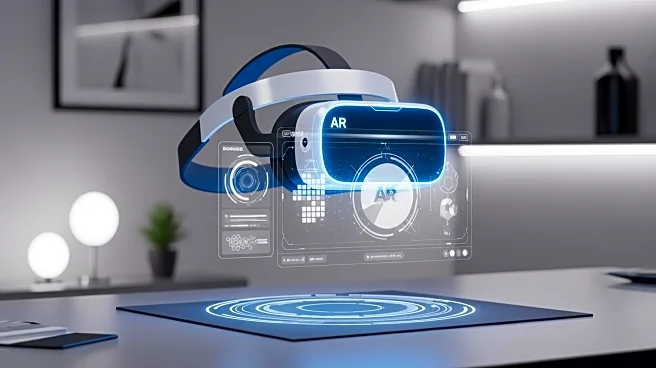What's Happening?
Trace, a startup founded by former Magic Leap engineers, has launched a new augmented reality creation platform designed to be the 'Canva of AR'. The platform allows users to create immersive AR content without coding or advanced design skills, targeting
global brands and independent creators. Trace is capitalizing on the discontinuation of Adobe's Aero AR platform and Meta's Spark AR platform by offering free premium plans to users migrating from these services. The platform is available for free on iOS devices, with a premium subscription option.
Why It's Important?
The launch of Trace represents a significant development in the AR industry, providing a user-friendly tool for creating AR experiences. This could democratize AR content creation, enabling a wider range of users, from educators to Fortune 500 brands, to engage with AR technology. The platform's ease of use and broad target audience may drive increased adoption of AR in marketing, visualization, and training, potentially expanding the market for AR applications. The strategic timing of the launch, following the discontinuation of major AR platforms, positions Trace to capture a significant share of the market.
What's Next?
Trace aims to grow its user base by attracting former users of Adobe Aero AR and Meta Spark AR platforms. The company plans to expand its offerings and support for AR content creation, potentially leading to partnerships with major brands and increased enterprise adoption. As AR technology continues to evolve, Trace may face competition from other platforms seeking to offer similar no-code solutions. The company's success will depend on its ability to innovate and meet the needs of a diverse user base.
Beyond the Headlines
The launch of Trace highlights the growing importance of accessible AR tools in the tech industry. As AR technology becomes more integrated into everyday life, platforms like Trace could play a crucial role in shaping how users interact with digital content. The platform's focus on ease of use may encourage more creative and diverse applications of AR, potentially influencing cultural and educational practices.















